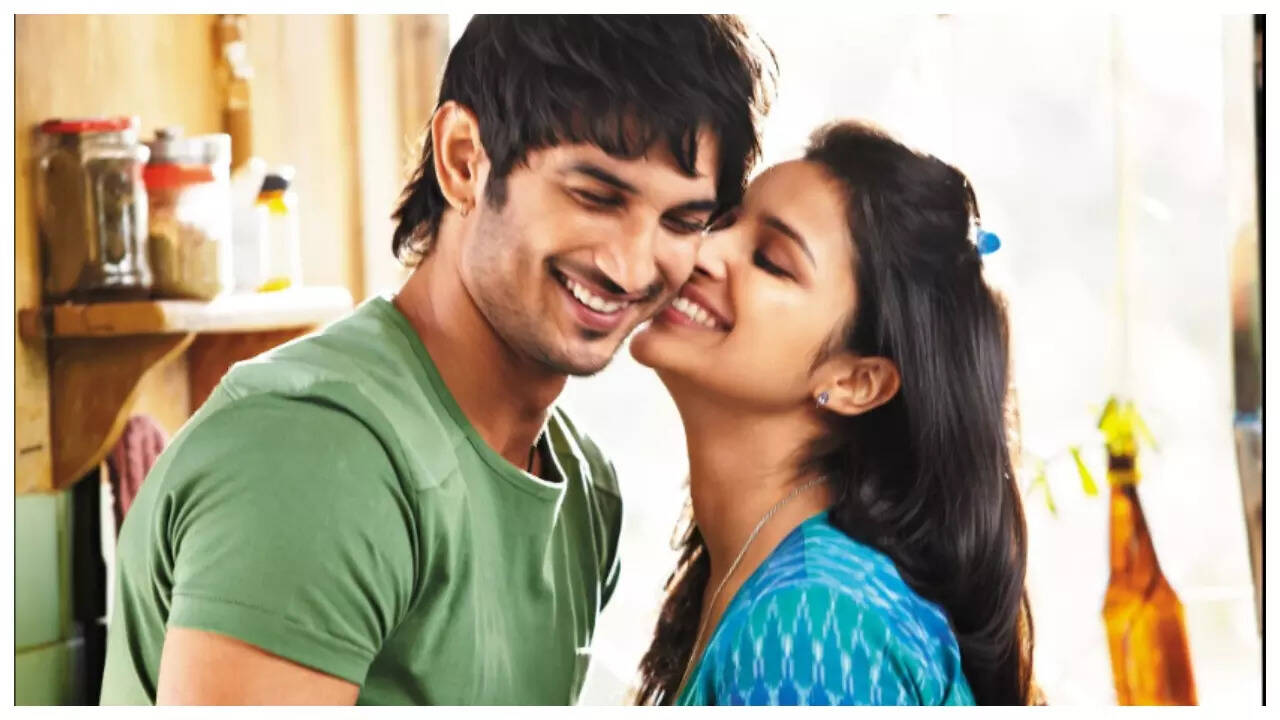[ad_1]
This is where Maneesh Sharma’s Shuddh Desi Romance (2013) broke the mould, shattering the notion that small town millennials (especially girls) can also be open about sexuality and body needs. Though Jaipur, where the movie is set, is a state capital, the Tier II city has hardly ever been explored this way in Bollywood, with filmmakers struggling to go beyond its cliched padharo mhare desh mein narrative. Most importantly, apart from a brilliantly shot Gulabi, some spectacular shots of the Pink City, and mannerisms of a certain Marwari businessman Goyal ji (played fabulously by the late Rishi Kapoor), you can place these characters in any smaller town and the plot would still hold water.
Gayatri (Parineeti Chopra), a 20 something young, brash and unfiltered girl, lives solo in Jaipur and apart from studying, poses as a fake wedding guest (employed by Goyal ji) at baraat parties to earn cash on the side. On one such occasion, she hops on a bus, but starts making out with the groom himself, who turns out to be tourist guide Raghu (Sushant Singh Rajput). Lured by their sizzling chemistry, Raghu runs away from the mandap, even as the jilted bride Tara (Vaani Kapoor) seems quite unperturbed by the whole scenario and later, plays a crucial part in the story.
Coming back to Gayatri and Raghu, their romance brims faster than instant coffee, as Raghu’s quickly moves into Gayatri’s modest terrace barsaati and their days are marked by cooking meals, (sometimes) going to work, taking a drag in the balcony and multiple bedroom romps. Of course, it is all fun and games, viewed through rose tinted glasses of young love, till they both think it could be something more. On Diwali night, in a drunken stupor, the two decide to get married, but karma comes to bite Raghu in the a** as this time, the commitment phobic Gayatri runs away from the mandap!
A few months later, Raghu bumps into Tara and the two start dating, with all seeming hunky dory, that is, until Gayatri makes a surprise re-entry to his life…
Maneesh Sharma, who had earlier helmed movies like Band Baaja Baaraat and Ladies vs Ricky Bahl, seems to have a knack for peeping deep into millennial psyche and how they think and function. Raghu and Gayatri, though good at heart, are indecisive, and mostly live life on the edge. While they mean no harm and are never a hindrance in anyone else’s life, they often can become fodder for gossip – just like the guy Raghu bumps into while buying ciggies at the local panwari, who unabashedly shames Gayatri for having a ‘lot of boyfriends’, without batting an eyelid for Raghu, who too, is part of the relationship.
Surprisingly, the good hearted and jovial Goyal ji, remains largely non-judgemental towards the young lovers, but ends up unconsciously slipping personal details about the two to each other, only to nonchalantly declare, ‘dusre ke maamle mein hume kya bolna‘ (why to intervene in someone else’s life) in the end.
Soon after Gayatri, Raghu finds solace in the arms of Tara, but their relationship, though slightly more stable, is neither serious nor long run. And somewhere, the commitment apart, Raghu’s heart still pines for Gayatri and the two decide to give their love another chance….
Live-in relationships, though not for everyone, are more prevalent in today’s society than ever. The movie however, does not either berate, nor supports the institution, and Maneesh consciously paints all three leads as deeply flawed, who in no way, should be seen as a benchmark for millenial decisions (we are better than this right?). The movie rather drives home the message that relationships are complicated and what works for one might not work for someone else and that is perfectly okay. As human beings, we all are wired differently and it is okay to not think of marriage as the ‘end goal’ of any relationship.
As Gayatri tells Raghu in the end that marriage is not an option for her for now at least, it is completely fine to not feel ready, now or ever.
As the lead stars perfectly sum it up in the title track, “jhoothe samajo se, jhoothe rivaajo so, liye hi jaaye koi chance“, (let’s break away from these hollow rituals and societal pressures) maybe love, the sugar-coated superlatives apart, can best be described as an institution that should be ‘to each its own’….
You can watch Shuddh Desi Romance on a leading OTT channel…
ETimes Decoded is our new, weekly column where we deconstruct movies, characters or plots to uncover a fresh, often undiscovered perspective.
[ad_2]
Source link


